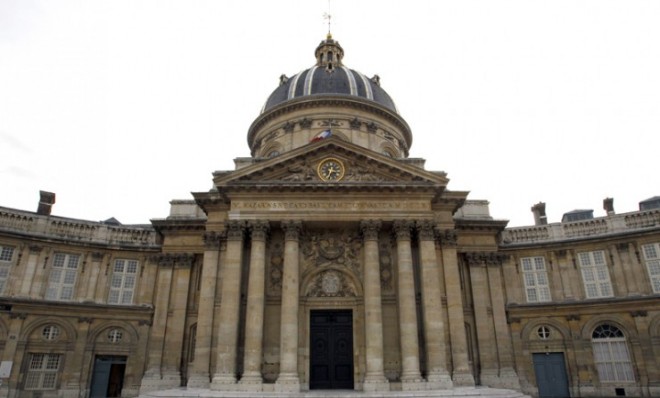Why the government should never, ever meddle with language
The fluidity of language is a testament to democratic values


A free daily email with the biggest news stories of the day – and the best features from TheWeek.com
You are now subscribed
Your newsletter sign-up was successful
Yesterday, the Académie Française announced the election of its first ever British member. Michael Edwards, a poet, professor, and literary critic who writes in both French and English, will join the ranks of les immortels (the immortals) who serve to protect and defend the French language from impurities. The Académie has been issuing judgments on vocabulary, grammar, spelling, and proper usage since 1635. Recently, they banned the word "hashtag" from French, proposing mot-dièse be used in its place.
The election of a native English speaker to the Academy may be a move to enhance the credibility of the organization's main job these days: Weeding out the influence of English. As the Academy fights against the encroachment of Anglicisms like dispatcher, reminder, overbooker, débriefer, and impacter, it might be nice to have an English speaker on their side. But it probably won't make a difference. The Academy's proclamations generally go unheeded by the public, who go on talking the way they want to talk.
At least the recommendations of the Académie Française aren't enforceable by law. There was an outcry in Quebec this week, after the agency charged with enforcing language laws there told the owner of an Italian restaurant his menu (filled with words like pasta and calamari) didn't have enough French on it. The government later retracted the complaint, calling it a mistake. It was not only a mistake, but a perfect example of the ridiculousness of authoritarian language meddling.
The Week
Escape your echo chamber. Get the facts behind the news, plus analysis from multiple perspectives.

Sign up for The Week's Free Newsletters
From our morning news briefing to a weekly Good News Newsletter, get the best of The Week delivered directly to your inbox.
From our morning news briefing to a weekly Good News Newsletter, get the best of The Week delivered directly to your inbox.
The U.S. has never had a language academy. John Adams proposed the idea of forming one to the Continental Congress in 1780, arguing that government should have a role in shaping the language that would propagate democratic ideals in the wider world, but his proposal never got out of committee. It carried a disagreeable scent of monarchy about it, a whiff of top-down control at odds with liberty. The U.S. at that time was a multilingual nation with significant numbers of French and German speakers who had served the Revolution and went on to wield economic and political influence in their own linguistic communities without interference. It wasn't until the xenophobic panic of World War I that people began calling for official English laws, a pointed rebuke to German speakers. In the controversy over immigration in the 1980s these calls resurfaced, this time directed at Spanish, and continue today.
Let's hope they don't succeed. The language of the U.S. has done quite well for itself in the world without a language academy or even official status. Kids running around saying "hashtag," or "impactful," or whatever else gets people complaining about the decline of language, is a small price to pay for liberty.
A free daily email with the biggest news stories of the day – and the best features from TheWeek.com
Arika Okrent is editor-at-large at TheWeek.com and a frequent contributor to Mental Floss. She is the author of In the Land of Invented Languages, a history of the attempt to build a better language. She holds a doctorate in linguistics and a first-level certification in Klingon. Follow her on Twitter.



